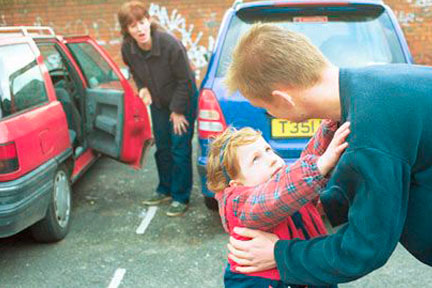
By Carolyn Ellis
When you get divorced and have children, you’ll be required to create a parenting plan which is a written document that spells out how you agree to parent your children. The parenting plan needs to be clear and practical and keep the best interests and needs of your children in mind. It’s also important for the parenting plan to be flexible so that it can be adjusted or updated over time to reflect the changing realities of your growing children or your family circumstances.
Don’t just leave it to your lawyers to work out your parenting plan. It is an important living roadmap that sets out the parameters for how your family evolves after divorce. It provides the essential framework of how you will co-parent together for years to come, so it is important that it reflect your values, agreements and desires for you want to raise your children.
Here are the essential elements you will want to consider and incorporate as you create your parenting plan.
Goals or Purpose of Your Plan
Your parenting plan should address the overall goals, values and principles that will guide your co-parenting relationship. It can be very powerful to include things like a commitment to keep your children’s best interests as your top priority, agreeing to be flexible and responsive when requests are made, and respecting one another as the parent of your children.
You should also be clear about the kind of parental responsibility and authority you will each have. Consult with your legal advisor regarding the type of custody and access you will have.
A Parental Code of Conduct
A code of conduct addresses the day-to-day and practical ways you agree to work with each other as co-parents. There are several issues you will want to spell out clearly in your parenting plan, such as how you will communicate; how often; what kind of response time will you give to one other to requests; how will you deal with children’s essential health and school documents.
Basic Responsibilities and Decision-Making for Children
Think about the basic areas of your children’s lives and how will you oversee and support your children. Lay out how you want to handle medical care for your child, including what you’ll do in case of an emergency health situation. Speak to your lawyer about what would happen if something happens to either you or your ex-spouse, or both of you. Who do you want to designate as a guardian for your children if either of you becomes ill or dies?
Education is another important part of your children’s lives so how will you make decisions about the kind of schools they’ll attend and how each parent will be involved in ongoing school events, like parent-teacher interviews. You’ll also want to decide about your children’s education in other aspects that might be important to you, such as religion, language or culture.
Extracurricular Activities
How will you support your children in terms of their experience and growth through extracurricular activities, camps, sports or other kinds of programs? Who is going to pick up the tab? Who will do the additional supervision or driving that might be needed to support your children? What agreements do you need around travelling with your children?
Child Care
With so many parents working outside the home, figuring out the best child care arrangement is an important area and can be one where disagreements arise. There’s a range of options out there, from home-based daycare, nannies to daycare centers. How will you fund your child care expenses and for how long do you want your children to have adult supervision other than a parent?
Parenting Schedule
Your parenting plan spells out the visitation schedule and when and how each parent spends time with the children. You’ll want to figure out how to handle holidays and birthdays and what happens if one parent needs to make a switch in the visitation schedule. How will you minimize any disruption transition time of your children going from one parent’s house to the other parent’s house? As your children grow, their needs may change so your parenting plan will need to adjust and grow with you.
Dispute Resolution
Plan in advance what you’re going to do if you cannot come to agreement between yourselves on any issue concerning your children. Be prepared to call in a third party expert, such as a social worker, parenting coordinator or mediator, if needed to help you work through disputes.








